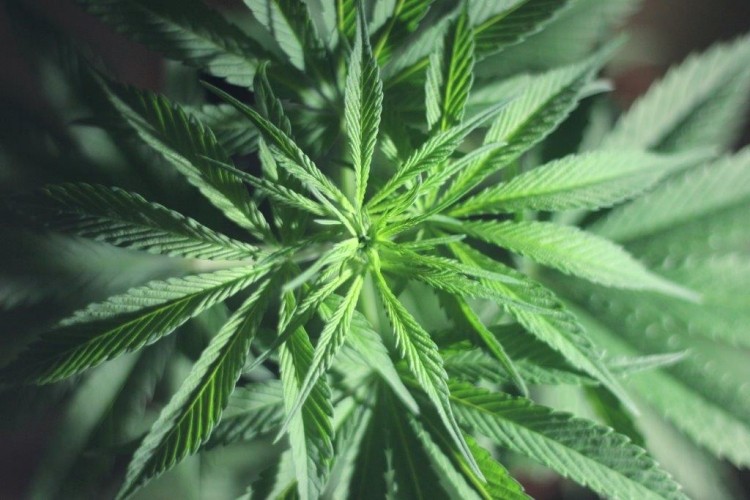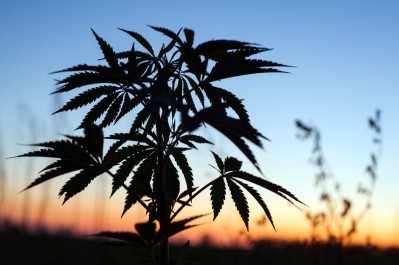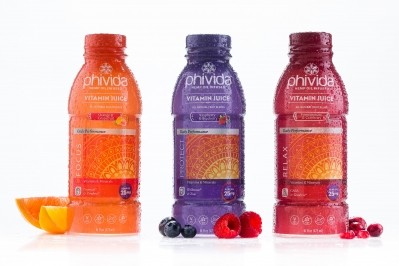Guest article
Endocannabinoid claims, climate change, adulteration progress: What to look for in 2018

The editors of this publication have asked me to write about the many opportunities, challenges, and potential changes in the herbal dietary supplement market in the United States that one might forecast in 2018. They are too numerous to cover in a brief article; below are a few that are worthy of mention.
Endocannabinoid system
In the area of what’s ‘new’ or at least relatively new, it should be fairly apparent that there will be increased research, industry, and consumer interest in herbs that modulate the endocannabinoid system (ECS). The growing interest in the therapeutic benefits of CBD (cannabidiol) has stimulated growing awareness of the ECS, a vitally important innate biochemical system that research supports as the homeostatic regulator of numerous important physiological processes. Now, based on recent research indicating that some compounds in various non-cannabis botanicals can affect one or another component of the ECS, some entrepreneurs are marketing herbal extracts for their claimed ECS-related health benefits. While there is obviously more research warranted in this area, it appears that this is an area of activity in the R&D sectors of some companies, with at least one advantage that products made from the non-cannabis botanicals may not be limited by current legal and regulatory concerns related to federal drug law enforcement concerning cannabis.
Emerging Mexican botanical
I am frequently asked by natural products and dietary supplement industry-centric reporters at this time of year to provide the names of a few herbs of emerging popularity in the coming year. I usually prefer to decline such invitations for a variety of reasons. However, there is at least one medicinal plant which I believe has significant potential to become one of the most considered herbs for use in the management blood glucose levels in people with either pre-diabetes or type 2 diabetes. The botanical extract also has beneficial impact on the levels of glycated hemoglobin A1c (HbA1c), an indicator for blood sugar levels in the previous 2-3 months, and thus a marker as to whether someone has diabetes (or pre-diabetes). The herb is hintonia (Hintonia latiflora), the bark of a Mexican tree, the extract of which has been studied in Europe in primarily small clinical trials going back to 1950, with more recent clinical research in the past 15 years. Although it certainly warrants additional research in larger, more well-controlled clinical trials, the current research suggests its consideration for its possible use as a therapeutic option in blood sugar control, possibly with also other botanicals with demonstrated glucose-modulating properties. As with most tree barks, sustainability issues may be need to be considered.
Antioxidant claims take back seat
The year 2018 will also very possibly contain reduced promotion and emphasis on ‘antioxidant’ (AO) activity of botanicals et al., based on an increasing amount of refusals on the part of scientific journals that will no longer accept research papers measuring and/or declaring the in vitro antioxidant activity of botanicals, vitamins, plant isolates, et al. The most recent is the December 2017 editorial by the USDA’s James Harnly, PhD in the Journal of Food Composition and Analysis. For years marketers of botanical dietary supplements have made AO claims based on the ORAC test (oxygen radical absorption capacity), and other colorimetric in vitro assays that may not directly translate to actual in vivo activity in animals or humans. How this professional scientific de-emphasis on the AO in vitro activity of various compounds in foods and botanicals will be reflected in the market is uncertain, but, presumably, as noted above, it may result in less AO claims in the supplement industry, and/or possibly mitigate the ability for some companies to substantiate AO structure/function claims.
BAP gets new name to go with same mission
On the Quality Control front, the ABC-AHP-NCNPR Botanical Adulterants Program (BAP), now being renamed the “Botanical Adulterants Prevention Program” (BAAP), will continue its publication of peer-reviewed documents confirming the adulteration of various botanical ingredients in order to alert industry members to use appropriate quality control measures to avoid purchasing such materials. Near the close of 2017 BAPP published its 37th peer-reviewed publication, the Botanical Adulterants Bulletin (BAB), on adulteration of cranberry extract. Early 2018 will see the publication of a BAB on adulteration of ginkgo leaf extract. This will be followed by additional BABs on the adulteration of aloe, ashwagandha, boswellia, cordyceps, maca, and turmeric. Unfortunately, BAPP research will no doubt confirm the adulteration of additional herbs, their extracts, and/or essential oils in the international supply chain.
Rejected material intiative
2018 will also see the development of the draft proposed Best Practices Standardized Operating Procedure for Proper Disposition and Destruction of Defective Rejected Ingredients, a new project being developed by BAPP. This Best Practices SOP is being developed based on the widespread knowledge that when dietary supplement manufacturers’ quality control efforts determine that an incoming dietary ingredient is adulterated (or, in some cases, contaminated beyond the ability to be adequately reconditioned), the manufacturer most likely will return the material to the supplier for credit or a refund. As many industry members know, such defective ingredients are routinely re-sold by the supplier to another manufacturer that may not utilize an adequate QC testing regimen. Under protocols to be outlined in the Best Practices SOP, buyers’ management will be encouraged to have the defective rejected material destroyed by a qualified third-party rather than return it, thereby keeping the defective material out of the supply chain and out of consumer products.
Climate change concerns
And, finally, from the all-important global sustainability perspective, it is worth noting that climate, scientists, agronomists, food scientists, and others, are concerned that increased climate change, continued warming of the atmosphere, and other environmental and meteorological events may continue to produce changes in the nutritive chemistry of conventional foods as well as pharmacologically active compounds in plants used for medicinal purposes. ABC’s peer-reviewed journal HerbalGram has covered some of these concerns and developments in past issues, and anticipates doing so in future issues as climate change and its potential detrimental effect on food production and production of medicinal and aromatic plants is an issue of concern to everyone.
This article is the second in a two-part series. The previous article is the author’s brief retrospective of the botanical dietary supplement market in 2017.
Mark Blumenthal is the founder and executive director of the American Botanical Council and the founder and director of the ABC-AHP-NCNPR Botanical Adulterants Program. ABC is an independent, non-profit research and education organization, tax-exempt under section 501(c)(3) of the IRS code. ABC is now in its 30th year of providing scientific research and educational content to the global botanical community.

















